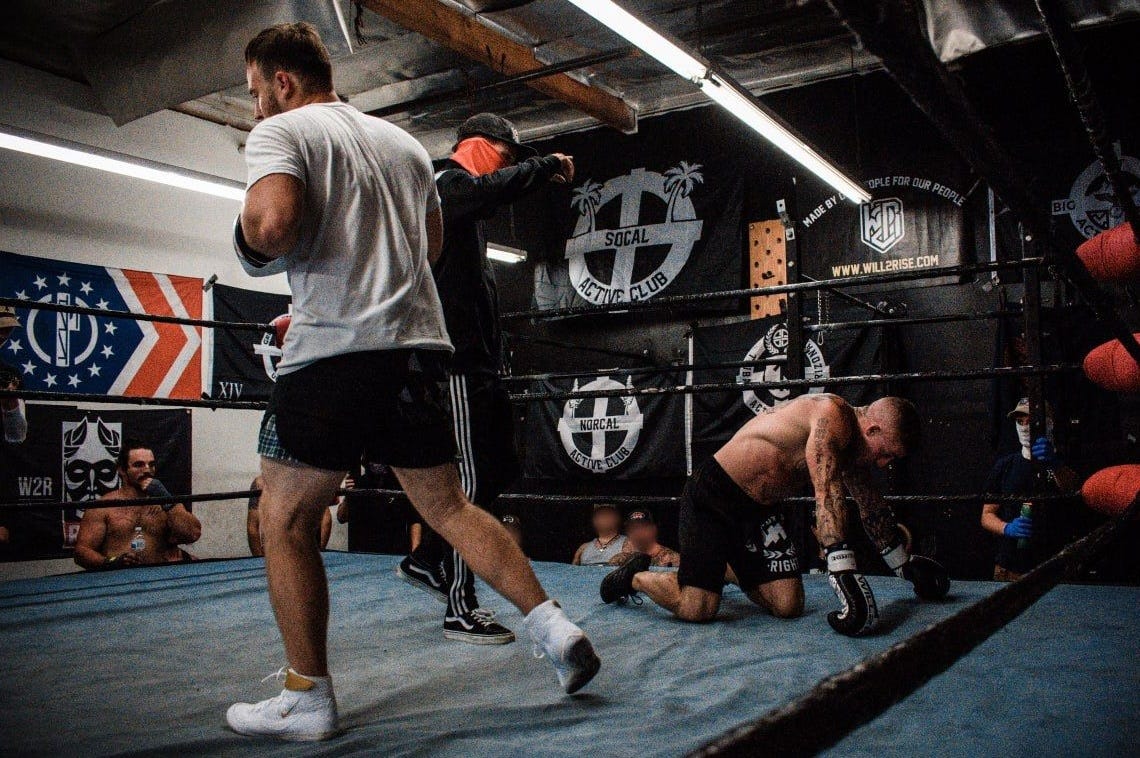Blood, Sweat, Hate: MMA's festering neo-Nazi problem
Extremists are using the sport’s counter-culture mystique to radicalize disenfranchised young men and to provide them a shared space to spread hate. Meanwhile, the UFC is also profiting off hate.

Welcome to Sports Politika, a newsletter and media platform focused on the intersection of sports, power and politics. This newsletter was founded by investigative journalist and researcher Karim Zidan and relies on the support of readers like you.
If you have not done so already, please consider becoming a paid subscriber.
Niklas Stolze was out of breath, having just completed a training session at La Onda Fight Club in Magdeburg, Germany when he picked up the phone and said he was finally ready to address his past association with German neo-Nazis.
“I’ve been dealing with this shit for years now,” Stolze told me on the phone last year. “It’s time to speak about it.”
Stolze detailed his journey to become one of the few German mixed martial arts fighters, and his signing by the Ultimate Fighting Championship, the most prominent MMA organization, in 2020. That journey included, on the advice of his manager, fighting for a team run by a notorious German neo-Nazi as he progressed from amateur to professional.
The reason? The neo-Nazi, Benjamin Brinsa, was one of the most experienced mixed martial arts fighters in the entire country. “If you have 5 to 6 MMA fighters in all of Germany who can help you because they are a little bit better than you, and then you have to cherry pick because you cannot train with him for this reason or because this guy is doing that,” Stolze asked.
He added: “Back in the day, I didn’t give a shit what anyone was saying, I just wanted to get some good training partners. But now, I wouldn’t do this.”
The intertwining of Stolze and Brinsa’s careers is a cautionary tale of how easy it is for mixed martial arts fighters to find themselves entangled with extremists on their quest to make a living from the sport. It also underscores the deep association between MMA and the far right, and the challenge for mixed martial arts organizations that recruit fighters from around the world and may not be familiar with the local politics everywhere.
According to interviews with several extremism researchers, MMA gyms have proven to be attractive recruiting grounds for the far right.
Extremists have used the sport’s counter-culture mystique to entice and radicalize disenfranchised young men and to provide them a shared space to spread their ideology. They have also used the sport to whitewash their activities and normalize their existence, primarily through interweaving themselves into local fight scenes and culture, as is evidenced from Stolze’s experience with Brinsa.
The regional nature of far right influence in combat sports raises concerns about how prominent MMA organizations such as the UFC can regulate instances of hate, how seriously they vet fighters and what they should be doing to limit the influence of hate in their sport.


